|
I'm sorry, I lied. I promised an essay on my addiction to Phyllis Reynolds Naylor's Alice series but I'm finding (surprise, surprise!) that sometimes the VCFA writing experience is just like...writing. Sometimes things don't work and drastic changes are needed. While I will always love the Alice series, I found I could describe my addiction with a couple of paragraphs, which just won't cover the ten page essay I need to submit this month. New plan: The Year of Billy Miller versus The Stories Julian Tells. (It's a long one, click read more if you're up for seeing the match!)
5 Comments
This week is a slight digression from my exploration of character, but as a side project (you know, when I'm procrastinating other writing I'm supposed to be doing...), I've been trying my hand at fantasy. I have a love-hate relationship with this genre, there's really no middle ground for me. Harry Potter? Love! Lord of the Rings? Movies yes, book no way. Last month, I explored why in one of my critical essays for VCFA. (My apologies in advance to fans of Graceling - I toughed it out until chapter four because I so loved the idea of its premise but then I couldn't take any more. This essay is in no way intended to dismiss the capabilities of the author, who is a very talented writer and arguably better at many other aspects of writing than Rowling.) Here's why: Fantastical Infodumps and Where Not To Find Them The map at the beginning should have stopped me right there. Attention, now entering Fantasyland! Warning, worldbuilding ahead! But I am a Potter fan who longs to go to Hogwarts. I like fantasy worlds and the premise of Kristin Cashore's Graceling intrigued me. Then I encountered too much information about Graces in the first chapter. When the second chapter began, surely enough, with “It was a land of seven kingdoms” (Cashore 17), I was done.
No one would argue that fantasy could be done without worldbuilding, it is as essential to the fantasy genre as happily ever after is to romance. But what is the best way to transfer knowledge of the fantastical world to the reader? Fantasy author Elizabeth Bear states that “oft-reviled, the infodump used artfully is nevertheless one of the best means of delivering information” (Bear 199). Yet personally, the mere hint of an infodump leaves me saying “screw the dragon ride” and using my own two feet to run from Fantasyland as fast as I can. Was this the determining factor for me in my love-hate relationship with fantasy, how artfully infodumps are used? As I was never able to finish J.R.R. Tolkien's The Lord of the Rings (yeah, it's a map thing), I decide to examine the second most popular fantasy novel of all time, J.K. Rowling's Harry Potter and the Sorcerer's Stone, the story of an orphaned boy who learns he is a wizard. Rowling artfully avoids any worldbuilding infodumps in her first chapter, choosing instead to provide back story on the Dursley family. Delivered in a fashion similar to the work of Roald Dahl, this serves two purposes. It distracts from the magical shimmers of the wizarding world already being revealed - “None of them noticed a large, tawny owl flutter past the window” (Rowling 2) – and also puts the reader in a position where to disbelieve in the wizarding world means siding with Team Dursley. Anyone up for membership in the most boring tie club? Anyone? Anyone? Rowling repeats this trick in her second chapter, using a short series of three events from Harry's past to show that, well, there's something about Harry. His hair mysteriously grows back after a bad haircut, a revolting hand-me-down sweater somehow shrinks in the laundry, and he manages to jump onto the roof at school when being bullied. Additionally, “[S]ometimes he thought (or maybe hoped) that strangers in the street seemed to know him” (Rowling 30). This could be a massive infodump of observations about these strangers, who are of course wizards, yet Rowling refrains from explaining, merely noting that the people have odd fashion tastes. When mysterious letters begin appearing for Harry and follow him and the Dursleys even out to an island in the middle of a stormy sea, Rowling still does not submit to an info-dump. Instead, she reveals glimmers of Harry's past through an argument the giant Hagrid has with the Dursleys, raising more questions than she answers throughout two pages of escalating fighting that builds to this: “STOP! I FORBID YOU!” yelled Uncle Vernon in panic. Aunt Petunia gave a gasp of horror. “Ah, go boil yer heads, both of yeh,” said Hagrid. “Harry – yer a wizard.” (Rowling 50) Though some of Rowling's other writing in this excerpt could be questioned, her suppression of info-dumping is admirable. Harry, you're a wizard. While it does fall on Hagrid to explain a bit of Harry's past, Rowling again avoids an info-dump, focusing the story on Voldemort over the magical world, raising as many new questions as she answers old, and skillfully weaving all of this into dialogue with Hagrid: [Hagrid sat down, stared into the fire for a few seconds, and then said, “It begins, I suppose, with – with a person called – but it's incredible yeh don't know his name, everyone in our world knows–” “Who?” [Harry answering] “Well – I don't like saying the name if I can help it. No one does.” “Why not?” “Gulpin' gargoyles, Harry, people are still scared. Blimey, this is difficult. See there was this wizard who went...bad. As bad as you could go. Worse. Worse than worse. His name was...” Hagrid gulped, but no words came out. “Could you write it down?” Harry suggested. “Nah – can't spell it...” (Rowling 54) Rowling continues this scene to basically establish that no one knows why Voldemort went to Harry's house or why Harry survived or what exactly happened to Voldemort, including if he is even really gone. A far cry from an explanation of the magical world, this is essentially the opposite of an infodump. Rowling uses a similar reverse infodump in a later scene where Harry meets Draco Malfoy as the two are getting measured for their school robes: “Have you got your own broom?” the boy went on. “No,” said Harry. “Play Quidditch at all?” “No,” Harry said again, wondering what on earth Quidditch could be. “I do – Father says it's a crime if I'm not picked to play for my House, and I must say, I agree. Know what House you'll be in yet?” “No,” said Harry, feeling more stupid by the minute. “Well, no one really knows until they get there, do they, but I know I'll be in Slytherin, all our family have been – imagine being in Hufflepuff, I think I'd leave, wouldn't you?” (Rowling 77) Instead of telling us about the magical world, Rowling lets us explore it with Harry as he buys his school supplies in Diagon Alley and magnifies the extent of it through the questions raised by her reverse infodumps. In contrast, here is an excerpt from the second chapter of Graceling: The kings of Wester, Nander, and Estill – they were the source of most of the trouble. They were cast from the same hotheaded mold, all ambitious, all envious. All thoughtless and heartless and inconstant. King Birn of Wester and King Drowden of Nander might form an alliance and pummel Estill's army on the northern borders, but Wester and Nander could never work together for long. Suddenly one would offend the other, and Wester and Nander would become enemies again, and Estill would join Nander to pound Wester. (Cashore 18) This infodump tells about the world but doesn't develop character, advance the plot, or raise questions for me as a reader, apart from how will I keep all these kings straight? Rowling does use one small paragraph that could be argued as an infodump at Ollivander's wand shop, where Mr. Ollivander says: “Every Ollivander wand has a core of a powerful magical substance, Mr. Potter. We use unicorn hairs, phoenix tail feathers, and the heartstrings of dragons. No two Ollivander wands are the same, just as no two unicorns, dragons, or phoenixes are quite the same. And of course, you will never get such good results with another wizard's wand.” (Rowling 84) With Mr. Ollivander's amazing memory about every wand he's ever sold, however, even this paragraph seems more about salesmanship than worldbuilding. A similar very short paragraph much later in the novel allows Harry to quote off some Quidditch trivia but is unnoticeable to the casual observer as Harry was reading a school library book on the subject, a natural activity for a student at any school. Mostly, Rowling writes confidently about her world. No explaining that ghosts exist, they simply stream through the wall. She allows magical events to unfold as any other event, such as the song of the Sorting Hat: “A rip near the brim opened wide like a mouth – and the hat began to sing” (Rowling 117). No explanation about how this occurs also conveniently prevents questioning of the magic involved. It is not until halfway through the novel when Harry begins classes at Hogwarts that Rowling succumbs to a couple of pages of infodump, describing the tricky staircases at Hogwarts, the characters of Peeves the poltergeist and Filch the caretaker, and the various classes required of first years. And apart from the first couple of paragraphs, this is not so much worldbuilding as a summary of Harry's first few days of class. Judging by the length and popularity of Rowling's ensuing books in the series, this summary could have been eliminated entirely and given over to active scenes following Harry through those first classes just as the reader has followed him thus far on his journey into the magical world. Rowling's novel stands apart from many fantasy novels in the fact that her main character, Harry, is, like the reader, new to her world. This begs the question as to whether complete exclusion of infodumps would work for all fantasy novels. For example, the scene in which Quidditch captain Oliver Wood explains the game to Harry would not have been natural nor believable if Harry were not new to the magical world himself. But in avoiding the infodumps stereotypical of her genre, Rowling merged fantasy and reality and this may be what brought many new fans to the fantasy fold. While infodumps continue in many fantasy novels, mine won't have a map. Works Cited Bear, Elizabeth. “Tactics of Wordbuilding.” Writer's Workshop of Science Fiction & Fantasy. Ed. Michael Knost. Lexington: Seventh Star Press, 2013. 193-200. Print. Cashore, Kristin. Graceling. New York: Graphia, 2008. Print. Rowling, J.K. Harry Potter and the Sorcerer's Stone. New York: Scholastic, 1997. Print. In a post on The Cambridge Children's Literature Students' Blog, a student remarked, “One thing I have decided on for sure in my quest is that children's literature cannot help but be didactic. In its very essence, it is an adult's construction of what children should be exposed to” (Ashley, n.p.). Yet while some children's books leave readers feeling the stiffness of the pew, others leave them feeling they have discovered something new about the world. Apart from the obvious advice of “don't preach,” however, how can writers avoid being didactic?
The premise of Angela Johnson's novel, The First Part Last, seems to lend itself to the pulpit. A teen boy gets his girlfriend pregnant and she ends up in a vegetative coma after suffering a complication from the pregnancy. Yet this love story between teen father and daughter is no Sunday morning special. Remember how at six you were sure your parents knew everything? How that had changed by the time you hit sixteen? As much as parents would like their teens to listen to them, the truth of the matter is that adults don't know everything. Few things in life are clearly black and white, and one way that Johnson avoids preaching is by making even Bobby's parents unsure of what to do. After Bobby is arrested for graffiti, his mother takes him and baby Feather to live with his father. But after moving them there, “she got back into her Jeep and sat there without turning on the ignition” (Johnson 101), illustrating her own uncertainty about her choice. Bobby's peers don't preach, for they don't know what to do, either. When Bobby first tells K-Boy and J.L. his news, they both laugh at him, even making jokes at first. Bobby's example isn't allowed to be a lesson to his friends, either: Two girls pass by us and stare at K-Boy. I mean they stop in the middle of the sidewalk and stare. He smiles back. I grab him by the arm. “Uh huh, they are so fine, but not today.” (Johnson 39) That's as far as any “conversion” goes. Bobby knows his peers will continue to have sex and doesn't ask for any abstinence beyond that one day. Leaving the parents and friends lost in the mist of what to do lets Bobby make choices different than what might commonly be suggested for someone in his situation. When Nia ends up in a coma, Bobby decides to keep their baby. A social worker tries briefly to intervene but Bobby responds, “No, I don't know anything about raising a kid. I'm sixteen and none of those people on the wall look like the kind of family me and Feather's gonna be. But I'm doing it” (124). Nia's parents tell him they'll support his decision but Bobby's observations make it clear they won't really be involved: “[W]hen they looked at the baby through the nursery glass, it was like they were saying good-bye” (Johnson 126). No outside force pressures Bobby into this choice. It could be argued that his choice is didactic as well, just against what is commonly accepted, but apart from the previously quoted outburst, Bobby doesn't extol his decision. Perhaps the ultimate in “preachy” factors, even God is left out as an authority. The only time God is mentioned at all is when Nia first enters her coma: The whacked part was I didn't start trying to make a deal with God till I was almost running through the doors. And when I see my mom's face I know I got to catch up. So I start begging. I say how it's supposed to work out 'cause we thought about it. We made a mistake but we aren't stupid. We were going to do the right thing. Then I guess I start babbling about how Nia looks when she sleeps and how she smiles and eats and laughs, but I have to stop 'cause even though I don't think about God or go to church, maybe this isn't the way you make deals with him. Maybe he doesn't listen if you scare everybody in the emergency room and hold on to your mom that tight while you're screaming and crying more than you ever have in your whole life. (Johnson 120) However, this moment doesn't cause Bobby to have a spiritual revelation. He doesn't develop a relationship with God, nor does he blame God for his troubles or reflect on what sins (even the seemingly obvious) might have caused this fury. He doesn't even refer to the Almighty with caps, using he instead of He. The focus of this hospital scene isn't judgment or right versus wrong but simply Bobby's pain at the loss of Nia. Johnson neither glorifies nor attacks teen parenthood but successfully pulls off a mixture of the sweet and sour. For example, she tempers harsh reality with humor, as in Bobby's mother's rules for him about baby Feather's care: If she hollers, she is mine. If she needs to be changed, she is always mine. In the dictionary next to “sitter,” there is not a picture of Grandma. It's time to grow up. Too late, you're out of time. Be a grown-up. (Johnson 14) Johnson also is careful to balance the fear of emergency room visits, the smell of spit-up, and the sleepless nights with the warmth of Feather, her sweet new baby smell, and realizations such as these: “I know something about this little thing that is my baby. I know that she needs me. I know what she does when she just needs me” (Johnson 15). Some situations are hard to express in words, and keeping complicated issues as simple as possible also helps Johnson avoid donning the clergy robe. For example, Johnson leaves the part where Nia actually tells Bobby she's pregnant “off screen”, choosing to show only this: ...Nia was waiting on our stoop for me with a red balloon. Just sittin' there with a balloon, looking all lost. I'll never forget that look and how her voice shook when she said, “Bobby, I've got something to tell you.” Then she handed me the balloon. (Johnson 6) Johnson thus avoids complicated and perhaps preachy discussions about exactly how this happened, whether they should/could/would have done something earlier, etc. Another technique Johnson uses that emphasizes the difficulties of the situation without preaching is having Bobby himself avoid thinking about it. At the obstetrician's office, for example, Bobby says, “I look at the skiing trophies and think about how cool and windy it must be to go down the slopes, and how I always wanted to learn how to ski” (Johnson 28). The First Part Last is not without somewhat didactic moments, including this lecture: I waited to hear how they'd been talking to me for years about this. How we all talked about respect and responsibility. How [my father] and me had taken the ferry out to Staten Island and talked about sex, to and from the island. And didn't we go together and get the condoms? What the hell about those pamphlets [my mother] put beside my bed about STDs and teenage pregnancy? How did this happen? Where was my head? Where was my sense? What the hell were we going to do? And then, not moving and still quiet, my pops just starts to cry. (Johnson 12-13) Yet this is the only lecture and notice how the protagonist lectures himself and that the attitude is one of regret but not of shame. There is also a “preacher” of sorts, who asks Bobby to consider what it means to be a man. But Johnson avoids being didactic here by twisting the traditional. Her “preacher,” “Just Frank,” lives his life “hanging on the corner, drinking forties at ten in the morning” (Johnson 7). Meanwhile, Bobby's teacher, the stereotypical helper, turns out to be no help at all but “just hopes [Bobby is] getting help” (44). Having played in the gray for the entire novel, Johnson doesn't tie everything up in a nice lesson at the conclusion but ends with uncertainty as well. After moving to Ohio to raise Feather alone, Bobby won't tell about saying good-bye or the places in the city he misses but says, “I can tell you how it feels sitting in the window with Feather pointing out the creek that rolls past our backyard. I can tell you how it is to feel as brand new as my daughter even though I don't know what comes next in this place called Heaven” (Johnson 131). The secret then, is to play in the gray. All this uncertainty means Johnson avoids a didactic message. Ironically, the novel still illustrates what many of its didactic equivalents attempt to portray: the hardships of teen pregnancy. But because of the gray, the messages are many and more than just messages. Bobby says, “I've never been closer to or loved anybody more than I love Feather” (Johnson 95) but what is love? What does it mean to be a family? What is success, what does it mean to be a man? These conversation starters are seeds for discussion and, through such discussion, personal growth for the reader. Works Cited: Ashley. “Subversively Didactic.” The Cambridge Children's Literature Students' Blog. Blogger.com, 28 August 2012. Web. 27 March 2014. <http://cambridgechildrenslit.blogspot.com/2012/08/subversively-didactic.html> Johnson, Angela. The First Part Last. New York: Simon & Schuster, 2003. Print.  When do all my brilliant new ideas come to me? When I have a bunch of other things I need to do, of course! Luckily time is always game for another round of Chicken. (VCFA packet due in five days...) So here we go on another round with a potential new WIP and Donald Maass's WRITING THE BREAKOUT NOVEL. In chapter three, Maass discusses stakes. It's a scary question to think about, but if your character doesn't get what he or she wants, then so what? In my premise above, what if Kylie doesn't get to go to the championships, then so what? What is lost, besides her own personal dream? Maass identifies three types of stakes: personal (for the character), public, and the author's own stakes, his or her reason for writing the novel. Writers should seek to elevate all three. I can up Kylie's personal stakes by meshing her desire to win with a desire to belong to the world of skating, a world that generally requires good looks and high finances to inhabit. If Kylie doesn't win, she's not only losing the opportunity but she's also proving that she doesn't belong in this world, that people who are overweight or poor can't skate. She is losing her ability to believe in herself, to believe that her dreams are reachable no matter what her background is. By incorporating the work for gay rights, I've raised the public stakes as well and conflicted them with Kylie's personal stakes. If Kylie doesn't take a stand in order to win, she thus undermines the work of those who are fighting for her acceptance. And this is part of my personal reason for writing this novel as well. I have close friends and family members who are gay and have shared their struggles with their feelings and coming out with me. Telling Kylie's story is a way for me to share pieces of their stories. So what are the stakes in YOUR story? Why does it matter to your characters, you, and the rest of the world? I am proud to belong to a fantastic SCBWI critique group called Four Ladies and a Gent, and my fellow members helped make Pairing Up what it is today. I knew the novel was ready for submission when our gent, a writer of MG fantasy and sci-fi, confessed that he couldn't believe I'd sold him on a figure skating romance. I think well-written stories can reach far beyond their intended audiences, and with that in mind I have two recommendations for this weekend with premises I never thought I'd like. I must confess that I am not a horse person. My apologies to all of you who are, but please don't stop reading because I'm about to recommend a couple of great horse books. If, like me, you just want to get out of this "stinking fresh country air" (quote from my four-year-old self), please also keep reading because these amazing authors sold me on their novels despite the fact that they're both about horses. The Scorpio Races, by Maggie Stiefvater 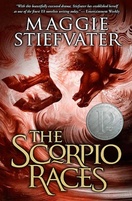 Nineteen-year-old Sean Kendrick is in love with water horses. It doesn't matter that one killed his father, that the mythical creatures brought to life in this novel would gladly eat their riders for lunch, that they're monsters. Puck (Kate) O'Connolly is terrified of these beasts who made her an orphan, yet through the novel she grows to love them and Sean. Stiefvater made me love these monstrous horses as well, with a world so seamlessly built into her story that I'm going to have to write an entire critical essay this month on how she did it. A fantasy without information dumps? A rare creature indeed, and I'm on a quest to find more. You don't have to like horses OR fantasy to LOVE The Scorpio Races, Stiefvater will sell you on her story either way. Racing Savannah, by Miranda Kenneally 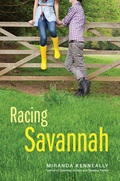 This is a light-hearted romance and not a fantasy at all, yet Kenneally uses her character's voice to show her world. I am a huge fan of Kenneally's use of landscape to flavor her character's voices and this book didn't fail to please, heading off to the races right out of the starting gate. Having read Kenneally's previous books, I also enjoyed the skillful way in which “where-are-they-now” scenes with characters from prior works were woven together with Savannah's story. Happy reading!
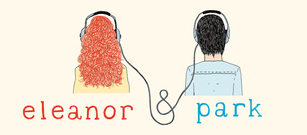 Eleanor & Park, by Rainbow Rowell, is the story of two misfits. Eleanor lives with a stepfather whose goal in life seems to be making her miserable, shares a room with her four brothers and sisters in a house with no door on the bathroom, and is tormented by her classmates. Park falls short, both physically and otherwise, of his father's expectations. Yet Eleanor & Park lives up to the “sexy, smart, tender romance” it is proclaimed to be in by Gayle Foreman's cover review. By strategically placing tender, smart, and sexy moments in the otherwise tragic lives of her characters, Rowell both tames tension and amplifies the effect of these hopeful moments to leave readers with the sense that love can uncross the stars. The novel opens with a short prologue that is actually a reprint of part of a scene that occurs much later in the book, where Park mourns the loss of Eleanor: “Standing behind him until he turned his head. Lying next to him just before he woke up. Making everyone else seem drabber and flatter and never good enough” (Rowell 1). Both tragic and tender, this scene sets the tone for the novel and provides the tenderness readers need to sustain them through Eleanor and Park's first meeting. A far cry from love at first sight, Park describes Eleanor using the words big, awkward, and mess. He compares her to a scarecrow. When he grudgingly allows her space on his seat, his first words to her are “Jesus-fuck...just sit down” (Rowell 9). Quite the heartthrob, and Eleanor's no better, silently thinking of Park as “that stupid Asian kid” (Rowell 12). Yet the prologue gives readers a sense that there is so much more to come, enough to sustain us through Chapter 6, when Eleanor finally thinks that Park at least has “cool shoes” (Rowell 24) and Park admits it feels “wrong to sit next to somebody every day and not talk to her” (Rowell 24). Park and Eleanor slowly begin to interact with each other after Park realizes that Eleanor is reading his comics along with him on the bus and notices her eyes: The new girl's eyes were darker than his mom's, really dark, almost like holes in her face. That made it sound bad, but it wasn't. It might even be the best thing about her. It kind of reminded Park of the way artists draw Jean Grey sometimes when she's using her telepathy, with her eyes all blacked out and alien. (Rowell 33-34) Park still doesn't say anything to Eleanor, but he begins holding his comics to make it easier for her to read along with him, begins saving them only to read on the bus so she doesn't miss sections, even begins bringing comics to silently lend to her. These smallest gestures of kindness are amplified because Rowell surrounds them with the depiction of Eleanor's crappy home life, where her creepy stepfather has torn down even the sheet that was over the bathroom doorway, and the back story reveal of how Eleanor had to live with another family for months, which was “Terrible. Lonely. [But still b]etter than here” (Rowell 36). Though Eleanor's home life is awful, Rowell doesn't make her a mere damsel in distress. She establishes Eleanor as intelligent and funny by interjecting scenes such as this one from an English class discussion: [Shakespeare's] so obviously making fun of them...Romeo and Juliet are just two rich kids who've always gotten every little thing they want. And now, they think they want each other...They don't even know each other...It was 'Oh my God, he's so cute' at first sight. If Shakespeare wanted you to believe they were in love, he wouldn't tell you in almost the very first scene that Romeo was so hung up on Rosaline...It's Shakespeare making fun of love. (Rowell 44) Wow. This girl is so smart, and I want to get to know her better. So does Park. They begin really talking on the bus, with playful banter including witty one-liners from Eleanor such as “The least boring Batman story ever, huh? Does Batman raise both eyebrows?” (Rowell 60). Rowell writes, “They agreed about everything important and argued about everything else. And that was good, too, because whenever they argued, Eleanor could always crack Park up” (Rowell 64). These smart scenes diffuse nights at home where Eleanor comforts her siblings as her stepfather rages and attacks their mother in the next room, where Eleanor wakes up smelling like pee because her brother wet the bed and heads off for the bus with only the scent of her stepfather's bacon for breakfast. Having established a tender, smart foundation for the blossoming romance between her two main characters, Rowell begins to include the first sexual scenes between Eleanor and Park. It doesn't take much. Combined with the tragedy that surrounds them, these scenes are amplified to the point where Rowell is able to sustain Eleanor and Park holding hands for the first time over two whole pages – and it's extremely hot. Not even beginning with actual hand-holding, Park first is simply holding the old silk scarf Eleanor had tied around her wrist. When he finally “slid the silk and his fingers into her open palm...Eleanor disintegrated” (Rowell 71). After, Eleanor wonders: “How could it be possible that there were that many nerve endings all in one place? And were they always there , or did they just flip on whenever they felt like it? Because, if they were always there, how did she manage to turn doorknobs without fainting?” (Rowell 73). Set against the tragic, the power of this scene is completely credible. When a girl named Tina (who “went” with Park in sixth grade) and some other mean classmates dump Eleanor's clothes in the toilet during gym class, Park gets an accidental view of Eleanor in her tight gym suit. Rowell twists the tragic into sexy by making Park aroused: “How could he even look at her now? He wouldn't be able to. Not without stripping her down to her gym suit. Without thinking about that long white zipper” (Rowell 245). Park's next meeting with Eleanor results in six steamy pages of make-out bliss, at the end of which he confesses his gym suit turn-on. Rowell sneaks in a classic bit of comic relief with Eleanor's smart response: “Tina would be so pissed” (Rowell 254). Through the inclusion of these and other tender, smart, and sexy scenes, Rowell sets readers up for the book's climax and conclusion. When Eleanor's stepfather finds out about Park, he is livid. Eleanor has to leave home again and we know she can never come back. Her last scenes with Park, as he drives her to her uncle's house hours away, are filled with the tragic and tender as we know they have to say good-bye. Unable to express her emotions for Park in words, Eleanor doesn't answer his letters. But after all these two have been through, this can't be the end and finally, on the last page, there's a postcard from Eleanor. “It filled his head with song lyrics...just three words long” (325). Rowell never says what those three words are, but we know they're the three that Eleanor never managed to tell Park. Just that one sentence and we know these star-crossed lovers get a happily ever after. Tender and tragic, smart and sad, sexy and stinging: Eleanor & Park is a combination as timeless as sweet and sour sauce that leaves readers wanting to come back for seconds. Is your work in progress too sweet or too sour? I hope this provides some food for thought. Also, check back this weekend for the debut of a new blog feature: "What to Read this Weekend." I'll be sharing a pair of YA books each Friday that I'm reading for inspiration, annotated with why you might check them out to improve your own craft. Included with the first "What to Read this Weekend" post will be the promised quiz to guess Gabe's original name in Pairing Up to win a hardcover copy of Something Real, fellow VCFA student Heather Demetrios's fantastic debut novel. Works Cited: Rowell, Rainbow. Eleanor & Park. New York: St. Martin's Griffin, 2013. Print. |
Reflections on Writing
I love few things better than a bottomless to-read list of books and firmly believe the world has room for all the stories we want to share. This blog is intended to provide resources and spark discussion about improving writing. Opinions are my own and not intended to discredit anyone else's work, only to open conversation. Thanks for reading!
Archives
September 2022
Categories
All
|
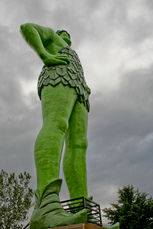

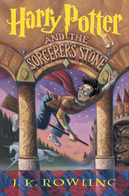
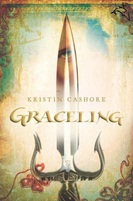

 RSS Feed
RSS Feed